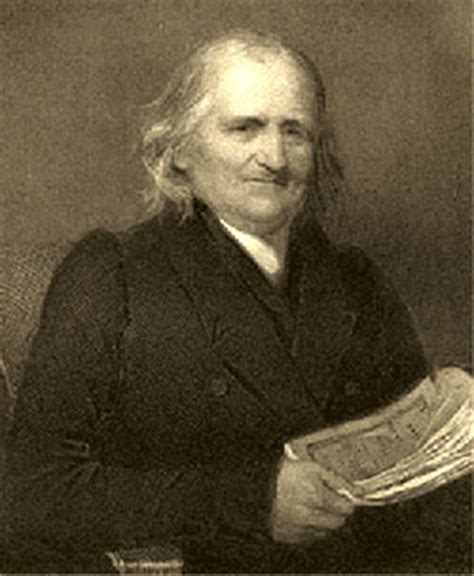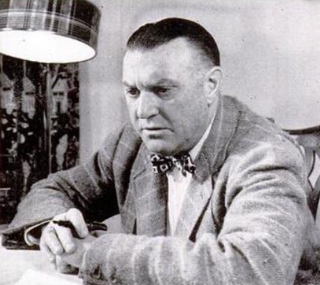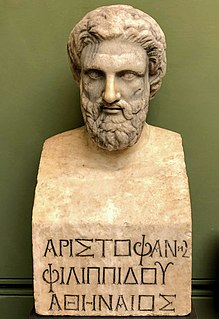A Quote by Noah Worcester
If rulers learn to undervalue the lives of their own subjects by the custom of war, how much more do they undervalue the lives of their enemies! As they learn to hear of the loss of five hundred or a thousand of their own men, with perhaps less feeling than they would hear of the death of a favorite horse or dog, so they learn to hear of the death of thousands after thousands on the side of the enemy with joy and exultation.
Related Quotes
You go out into the world, you read everything you can read, you imitate the things you love, and you learn how hard it is to do. Eventually, you learn your own vision of the world, you learn your own voice and how to hear it, and you learn to write your own work. Writers today have as many opportunities as my generation did, but they don't see the examples as clearly as we did.
Do you have any idea how many lives we must have gone through before we even get the first idea that there is more to life than eating, or fighting, or power in the Flock? A thousand lives, Jon, ten thousand! And then another hundred lives until we began to learn that there is such a thing as perfection, and another hundred again to get the idea that our purpose for living is to find that perfection and show it forth... we choose our next world through what we learn in this one. Learn nothing, and the next world is the same as this one, all the same limitations and lead weights to overcome.
There would be no chance at all of getting to know death if it happened only once. But fortunately, life is nothing but a continuing dance of birth and death, a dance of change. Every time I hear the rush of a mountain stream, or the waves crashing on the shore, or my own heartbeat, I hear the sound of impermanence. These changes, these small deaths, are our living links with death. They are death's pulses, death's heartbeat, prompting us to let go of all the things we cling to.
Men look on knowledge which they learn--or might learn--from others as they do on the most beautiful structures which are not their own: in outward objects, they would rather behold their own hogsty than their neighbor's palace; and in mental ones, would prefer one grain of knowledge gained by their own observation to all the wisdom of a thousand Solomons.
People who make war in order to escape slavery may possibly win....This will doubtless bring death and suffering to thousands....But people who tamely allow slavery to be imposed on them without resorting to a defensive war are inevitably doomed to years of death and suffering-and far more of each than any war would bring to them....The army doesn't exist that can annihilate men in their own land-not if they love it sufficiently.
It takes more time and effort and delicacy to learn the silence of a people than to learn its sounds. Some people have a special gift for this. Perhaps this explains why some missionaries, notwithstanding their efforts, never come to speak properly, to communicate delicately through silences. Although they "speak with the accent of natives" they remain forever thousands of miles away. The learning of the grammar of silence is an art much more difficult to learn than the grammar of sounds.
The positive thing about collaborating is that I cannot get distracted by coding work, because I cannot waste the other collaborator's time in the same way as I can my own. And it's always good to learn how the other person works, learn about techniques, learn social things like: how do you communicate with another person? The music I make with other people I'm much more confident about, I'm a little bit less judgemental of the outcome than with my own stuff because I know it's not only me, it's a more outside of me. Sometimes I even like them better than my own tracks.
While you are walking you would learn much more about filmmaking than if you were in a classroom. During your voyage you will learn more about what your future holds than in five years at film school. Your experiences would be the very opposite of academic knowledge, for academia is the death of cinema. It is the very opposite of passion.
You're mistaken; men of sense often learn much from their enemies. Prudence is the best safeguard. This principle cannot be learnt from a friend: but an enemy extorts it immediately. It is from their foes and not their friends, that cities learn the lesson of building high walls and ships of war. And this lesson saves their children, their homes, and their properties.
I didn't study anything really. I didn't learn out of the books because I couldn't read music very well, so it is what they say it is - you learn from other people. And my cohorts and I would sneak around the coffee shops and hear stuff we wanted to learn, and then you ask whoever was playing it to teach you.
Were I to go down into the market-place, armed with the powers of witchcraft, and take a peasant by the shoulders and whisper to him, 'In your lifetime, have you known peace?' wait for his answer, shake his shoulders and transform him into his father, and ask him the same question, and transform him in his turn to his father, I would never hear the word 'Yes,' if I carried my questioning of the dead back for a thousand years. I would always hear, 'No, there was fear, there were our enemies without, our rulers within, there was prison, there was torture, there was violent death.

































